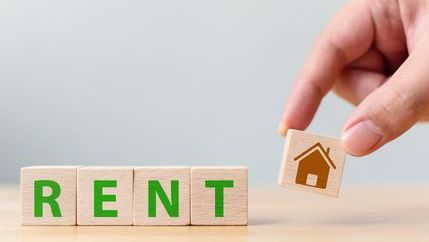
The forum expressed strong challenges on removing fixed-term tenancies, providing compelling evidence of the impact on tenants and landlords, and Executives made a clear case for more detail on areas including reasonable grounds to refuse pets and the ability to take rent upfront.
The opportunity to have a positive and open discussion of the issues demonstrates the value of Propertymark’s continued close engagement with the UK Government on the Bill, which will continue as it moves through the necessary stages in parliament before becoming law.
The Second Reading is due to take place in the House of Commons on 9 October 2024, which will allow MPs to debate the main principles of the Bill. The next step will be a Committee Stage, where the first amendments can be considered.
Consternation over periodic tenancies
The loss of fixed-term tenancies is creating the most concern and confusion among members, who were not convinced that the move would benefit either tenants or landlords. One London-based agent confirmed that from their 30,000 tenancies, the average fixed-term tenancy was 22 months, driven by tenant requests.
Clarity is needed from the UK Government on the rules for taking rent payments up front, as the current working of the Bill suggests that the maximum that can be collected will be a month’s rent. This will reduce access to rented accommodation for students (especially non-UK students), self-employed people, and pensioners, who are less likely to have regular monthly incomes or be able to secure a guarantor.
Pet protection must be thorough
The MHCLG officials confirmed that landlords will be able to ask tenants to take out pet insurance as a condition of the tenancy once the Bill introduces greater rights for tenants to keep pets, however, some misgivings remain amongst property owners.
Insurance products must be comprehensive and work effectively to ensure landlords can have claims reliably paid. There should also be a way to guarantee that if a tenant is responsible for arranging insurance, they maintain cover throughout their tenancy.
There is significant support for reintroducing flexible deposits so that a larger amount could be collected upfront . This would reassure the landlord and enable the tenant to get their money back at the end of the tenancy if no damage has occurred.
Consistent standards and sensible exceptions
To ensure that agents and their landlords can comply with new rules such as the Decent Homes Standards and Awaab’s Law, clear guidance must be provided so that they are applied and enforced in the same way by all local authorities.
There must also be reasonable flexibility to allow for the variety of property types in the PRS and an acknowledgement that the same level of funding is not available for property upgrades in the private sector compared to the social sector.
A Regional Executive representing members in a largely rural area explained to the MHCLG officials that the greater proportion of older buildings, special circumstances such as homes on livestock farms, and the need to accommodate temporary agricultural workers mean that pragmatic adjustments will be necessary to avoid creating problems for landlords and tenants outside of urban areas.
Bidding wars are a red herring
Whilst the issue has become a frequent headline-grabber, being asked by a landlord to encourage bidding on a property is rarely seen. Instead, with the expert advice of their agent, landlords advertise their properties for a rental amount that they are comfortable with and place greater importance on finding good tenants for their property.
Where bids are made, they are driven by tenants desperate to secure a home in a market where there is a severe shortage of properties to rent, emphasising the vital importance of increasing the availability of homes of all tenures.
Agent input is essential to progress
Propertymark has been conducting a lobbying campaign on behalf of members and the wider sector, and the support and engagement of industry professionals is vital to keep up the momentum as MPs begin to scrutinise the Bill.
We are calling on members to contact the MP for the constituency where they live or work to communicate their concerns, discourage anti-landlord rhetoric, and support measures to strengthen the legislation.
Our Renters’ Rights Bill Member Toolkit includes guidance on contacting your MP, an overview of key points to raise, email and letter templates, and advice on arranging a meeting to talk about the issues in your area.
Supporting property agents to adapt
We know many agents are having difficult conversations with landlords so, , the Toolkit also includes talking points and assets to share with clients to reassure them about the management of their property assets in the future and retain their trust.
Attend a Propertymark Regional Conference to hear from legal and policy experts about the implications for agents, businesses, and their landlords.
Learn from renowned industry expert Tessa Shepperson who will lead a virtual training course — Preparing for the Renters’ Rights Bill. Tessa is a well-known author, trainer on PRS legal issues and a regulated solicitor who has specialised in residential landlord and tenant law for 25 years. She will guide you through areas where the Bill will affect landlords and agents and provide tips, insights and advice on preparing for this new regime.
Renters' Rights Act
The Renters’ Rights Act 2025 received Royal Assent on 27 October 2025. The first phase of reforms will take effect on 1 May 2026, marking the most significant shift to tenancy law in a generation. From this date, all existing and new private tenancies in England will move onto the new system.





